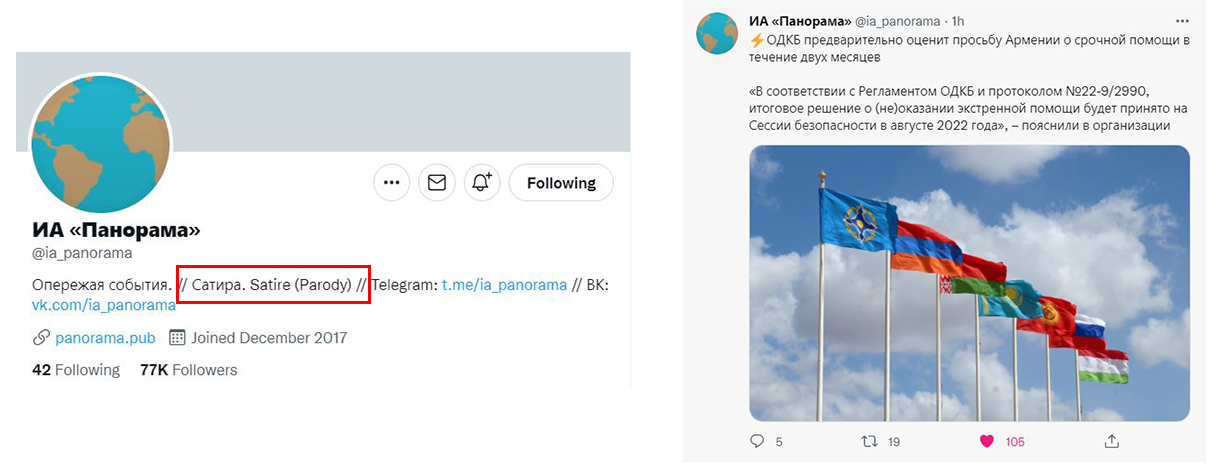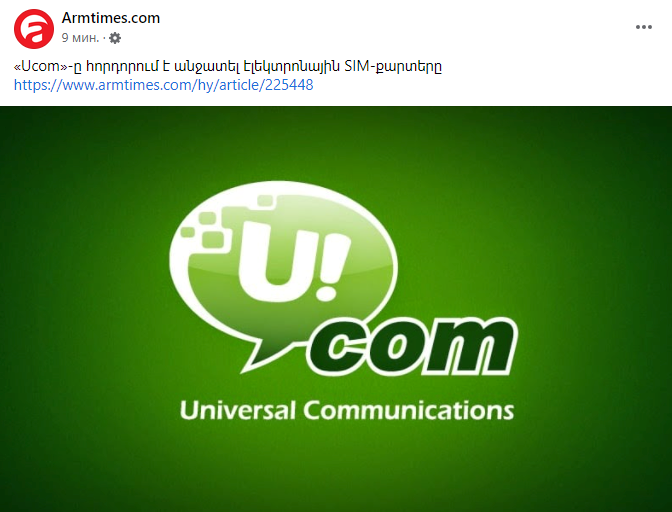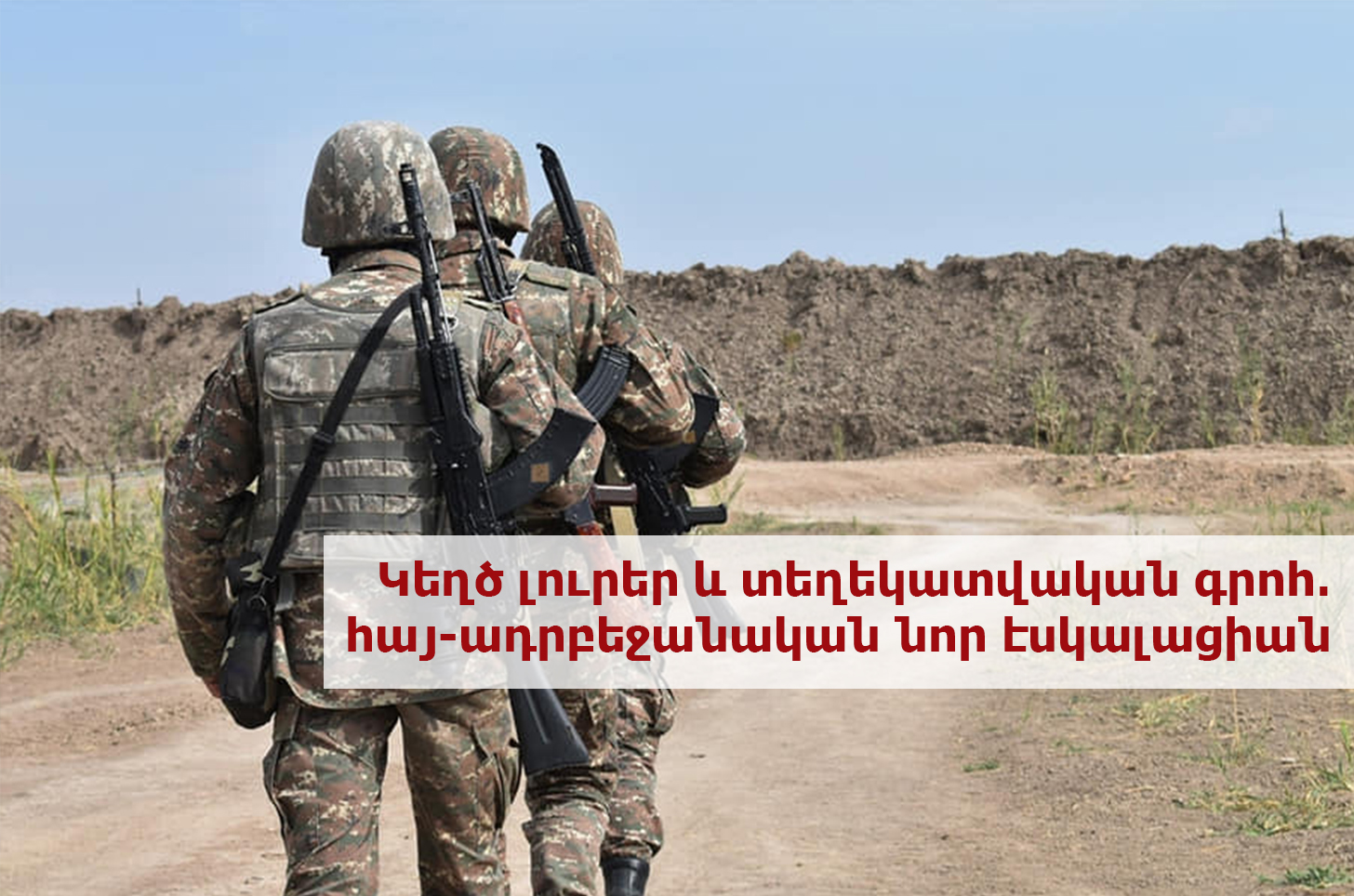On November 16, the largest-scale clashes since the end of the war took place on the Armenian-Azerbaijani border. The Armenian side reported casualties (there was no official information on the number of deaths and wounded at the time of publication of the article) and 12 captives.
Along with the tense military situation, the flow of misinformation increased. Here’s the fake news of the day, as well as a case of an information attack against the residents of Armenia.
The CSTO did not say it will consider Armenia’s application for two months
Facebook user Lusine Hovhannisyan shared information that the CSTO has decided to consider Armenia’s application for two months, initially, and respond to it in August 2022. Her post was shared more than 160 times in about an hour.
The information was incorrect. Hovhannisyan had spread the publication of the humorous IA Panorama (ИА Панорама) page. This page is satirical, the information spread by it is not real news, but are parody publications.

Information and cyber-attacks
Against the background of border tensions, information attacks and cyber-attacks also intensified. The work of Armtimes.com news site was disrupted. Mobile network operators urged to ignore calls and messages from suspicious numbers (link 1, link 2, link 3). Ucom, for example, wrote that “the enemy is using all means to spread panic, encouraging users to turn off their electronic SIM cards.” In other words, the communication operator warned that the enemy was urging Armenians to turn off their SIM cards.
Armtimes.com, sharing the operator’s post on Facebook, mentioned that Ucom urges to turn off electronic SIM cards. The news outlet thus distorted the content of the company’s post, as such an appeal, according to Ucom, was made by the enemy in order to panic people. There was no need to turn off the electronic SIM cards.

Azerbaijani Telegram channels were also working actively. In particular, the Bez Masok CHIV (Без Масок ЧИВ) channel urged its followers to call random Armenian phone numbers or send voice messages to them, urging people to leave the towns and villages bordering with Azerbaijan. Looking at the comments, we noticed that the followers had already begun to call Armenian numbers. We found out that the border population really received such calls. Later, the National Security Service informed that messages conveying misinformation were spread by Azerbaijanis, as various social media platforms and websites were calling on them to launch “terrorist” telephone operations against Armenians.
The Azerbaijani propaganda website manipulated Armen Grigoryan’s words
Azerbaijani haqqin.az wrote about the interview of the Secretary of the Security Council of Armenia Armen Grigoryan, noting in the headline that Nikol Pashinyan’s government stated, “if Russia does not help us, we will turn to NATO.” Thus, the news site distorted Armen Grigoryan’s words, as the latter did not make such a statement in the interview.
In an interview with Public TV, Grigoryan specifically said, “Armenia, first of all, thinks that the crisis can be resolved through the Russian Federation and the CSTO structures, but if we cannot […] resolve the crisis with the existing structures, then Armenia will have to turn to other structures, that is, to other international partners, to solve the crisis. But we prioritize the mechanisms endowed with contractual obligations that can be launched at the moment.”
Grigoryan did not make any claims about NATO.
Karine Ghazaryan
Ophelia Simonyan






